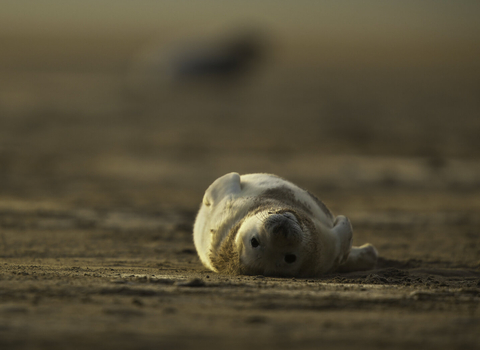Why Do We Survey?
To protect Yorkshire’s marine wildlife and habitats, we need to understand what lives in our seas, where it lives, and why. This is why we carry out dedicated surveys.
By collecting evidence, we can make strong scientific arguments for protecting species and habitats. For example, we use this data to support the creation of Marine Protected Areas—nature reserves at sea—and ensure they are properly managed.
What We Do
Yorkshire Wildlife Trust helps gather data about marine wildlife and habitats in several ways:
- Running surveys: We carry out regular surveys, such as the annual eelgrass bed survey at Spurn National Nature Reserve.
- Training others: We work with partner organisations to train people to record marine life, including:
Identifying intertidal species (shoreline plants and animals),
Collecting shark and skate egg cases,
Recording sightings of marine mammals, like dolphins or porpoises.
- Supporting others: We help organisations like Seasearch, a group of volunteer divers who record underwater habitats and species.
Case study: Seagrass Bed Surveys
Seagrass is a marine flowering plant that forms dense meadows in shallow coastal waters. These meadows look like underwater grasslands but are incredibly important for wildlife and people.
Unfortunately, seagrass beds have declined sharply in recent decades due to human activity. In Yorkshire, the only remaining seagrass beds are found in the Humber estuary. These are protected as part of the Humber Estuary Special Area of Conservation.
At Spurn Point, we work with the North Eastern Inshore Fisheries and Conservation Authority to survey seagrass beds every year.
By monitoring these beds, we can:
Track their size and health over time,
Spot changes early, and;
Adjust management measures if needed.
Since we started monitoring five years ago, we’ve seen small increases in the amount of seagrass every year, supported by our Wilder Humber restoration project—fantastic news! Seagrass provides huge benefits: it supports marine wildlife and helps people by improving water quality and storing carbon.







